i want to write a global keyboard hook to disallow task switching.When i googled i found a whole lot of codes in c#,cpp (and delphi), but i need some basic concepts about hooking (would be the best if examples are in C).So, kindly suggest the resources,links that can help me understand the thing in C's perspective.
PS: I found one good working example(works on winXP and older versions),but when i tried compiling the code it gives me:

And i tried searching the "IDC_" constants in all the headers(default ones that come with MinGW gcc installation and the ones provided by developer),but no luck...If any one can compile the code and make it run please help me.I have not uploaded the source itself here as there are a few header file dependencies and in that case i'd have to post all the code here.
winXP is the target environment but would be better if i get it to run Win7 also.